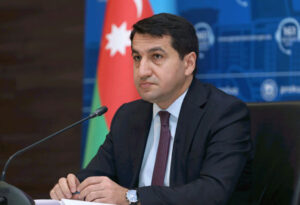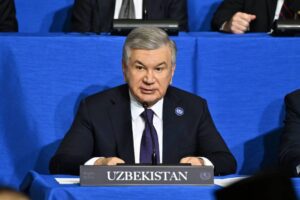From Occupation to Liberation – How Azerbaijan’s Win in Garabagh Rewrites the Rules of Sovereignty

Over time, Azerbaijan’s military and political triumph in the Garabagh conflict stands out not only as a clear win over Armenia but also as a pacesetter for like conflicts all around. Unquestionably, it is successful; even Russia, Armenia’s main ally and one of its biggest sponsors, cannot deny it. Russia understands, on the other hand, that this triumph might set a standard for other wars. One cannot understand the words of Vladimir Medinskiy, a Russian President’s advisor otherwise.
From this standpoint, irredentist policies have been set stage by the UN’s and other big organizations’ incompetence. Certain nations invade the territory of their neighbors, transforming them into disputed areas, confident they would not suffer consequences. Unfortunately, the failure of major international organizations originally set to prevent such crises and the double standards of strong nations lead to the existence of scores of “disputed territories” worldwide. Moreover, such disputes have let strong nations meddle in regional countries’ internal affairs. Hence, except from Garabagh, none of these disputes have been settled.
Many felt from the beginning that the Garabagh conflict would be no exception. Levon Ter-Petrosyan, Armenia’s first President, also made comparisons between the Garabagh conflict and others in his speech when Armenian military troops invaded Azerbaijan’s Agdam. He said specifically that he had no idea whether the invasion of Garabagh was approved or not. He was sure the conflict would not be resolved quickly, which would eventually help Armenia.
Time has shown Ter-Petrosyan and his masterminds—mostly Russia—mistaken. After thirty years, Azerbaijan won handily and freed its territory despite the protracted wait. Armenia finds itself in a deadlock today; one of the brains behind this misleading scheme, Russia, stands shocked. Their approach has backfired since aggressor countries fear meeting Armenia’s fate and a precedent now exists.
Medinskiy freely acknowledged this anxiety in his most recent interview: What if Ukraine releases its seized territory in a few years, copying Azerbaijan?
Medinskiy’s comments also highlight still another important problem. Armenia has relied for years on the concept of self-determination, asserting that the Garabagh problem had nothing to do with Armenia and that the Armenians in Garabagh had apparently grown up separately. The world was fed these fabrications as truth. Moscow is trying to spread similar lies right now.
This geopolitical change marks a turning point in world peace building. The victory of Azerbaijan is a striking illustration of how territorial conflicts—even those long ingrained—are not always permanent. It emphasizes how military capability, strategic diplomacy, and tenacity can produce decisive results, so subverting decades-old presumptions about frozen conflicts.
Furthermore, this triumph challenges the status quo for aggressor countries who formerly depended on protracted occupation and international uncertainty to keep control over contested areas. The anxiety Medinskiy revealed points to nations like Russia realizing that unresolved issues might not stay still indefinitely. Inspired by Azerbaijan’s success, Ukraine, for example, could implement like tactics to recover its seized territory.
Apart from the battlefield, the consequences for world diplomacy are significant. The inability of big international organizations to properly handle territorial conflicts begs doubts on their relevance and efficiency in preserving world stability. Should Azerbaijan’s model inspire other countries to seek justice in spite of world inaction, it could compel world powers to reconsider their strategy for conflict resolution.
This precedent teaches global sovereignty and resilience, not only a regional one. Azerbaijan has shown that tenacity can change the past by confronting enemies and motivating countries going through comparable challenges. Azerbaijan’s triumph not only changes its own future but also questions the basis of world conflict resolution by demonstrating that tenaciousness and moral will can overcome diplomatic inertia and stagnation. Knowing that history favors those who reject to give up their sovereignty, countries experiencing similar challenges may start to rethink their approaches as the world watches.


